Wondering, “what are the best foods for gut health ?”, if you say YES, then these 15 best foods for gut health can help keep your digestion smooth, your immune system strong, and your energy up. These …foods aren’t just good for your belly—they’re delicious and easy to add to your daily meals.
How To Improve Gut Health Naturally
So,
What Are The Best Foods For Gut Health?
Here there are :
Yogurt

Yogurt is one of the easiest and tastiest ways to show your gut some love. It’s full of probiotics—those good-for-you bacteria that help balance things out in your digestive system. But not all yogurts are created equal. Skip the ones with loads of added sugar and go for plain or unsweetened varieties. If the taste feels a little too tangy, try adding a drizzle of honey or some fresh fruit. You can also mix in granola or chia seeds for extra fiber. Enjoy it for breakfast, use it as a dip, or even as a base for dressings. Your gut will thank you, and your tastebuds won’t complain either.
Kefir
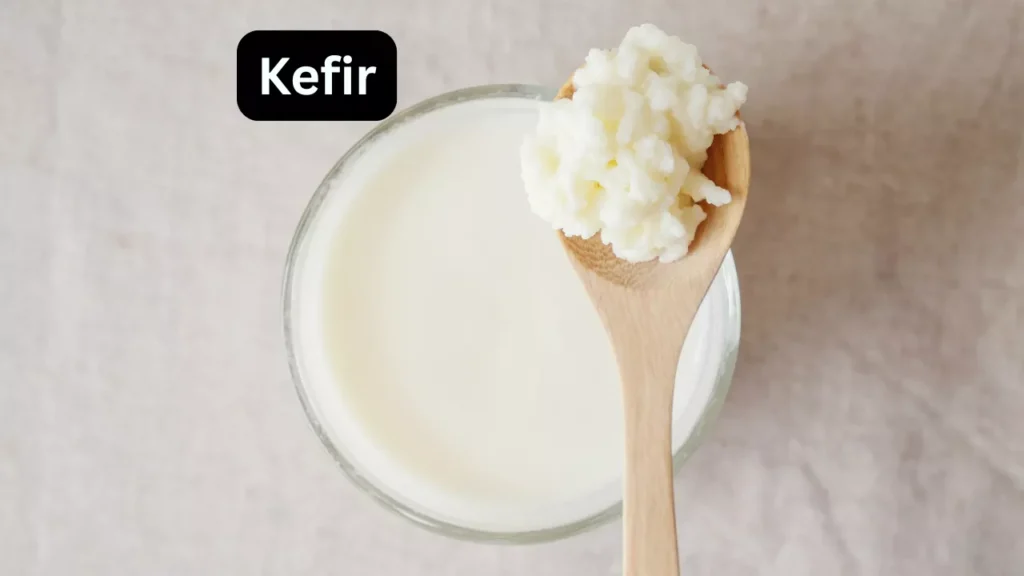
Kefir is like yogurt’s tangy, drinkable cousin—except it usually has even more probiotics. It’s made by fermenting milk with special cultures, and the result is a slightly sour drink that’s smooth and refreshing. Drinking kefir regularly may help keep your digestive system moving smoothly, and it’s a fantastic option if you’re feeling a little bloated or off. You can sip it straight, add it to smoothies, or pour it over cereal like milk. Some folks even use it in baking or as a base for creamy sauces. If you’re new to kefir, start with a small serving to let your body adjust.
Sauerkraut
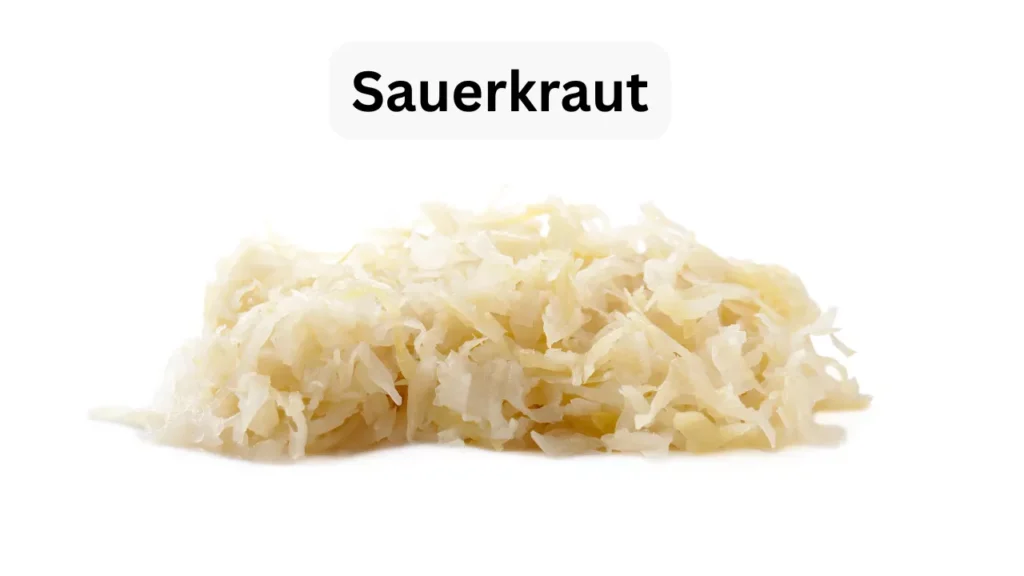
Don’t let the name scare you off—sauerkraut is just fermented cabbage, and it’s surprisingly tasty. The fermentation process loads it with probiotics that can help balance the bacteria in your gut. Plus, cabbage itself is full of fiber, which feeds your good gut microbes. Try adding a spoonful to your sandwich, tossing it into salads, or pairing it with grilled meats. Just make sure you choose the unpasteurized kind from the refrigerated section—those versions have live cultures. Canned versions on the shelf? Not so much. This crunchy, tangy food packs a double punch for gut health: probiotics and fiber.
Kimchi
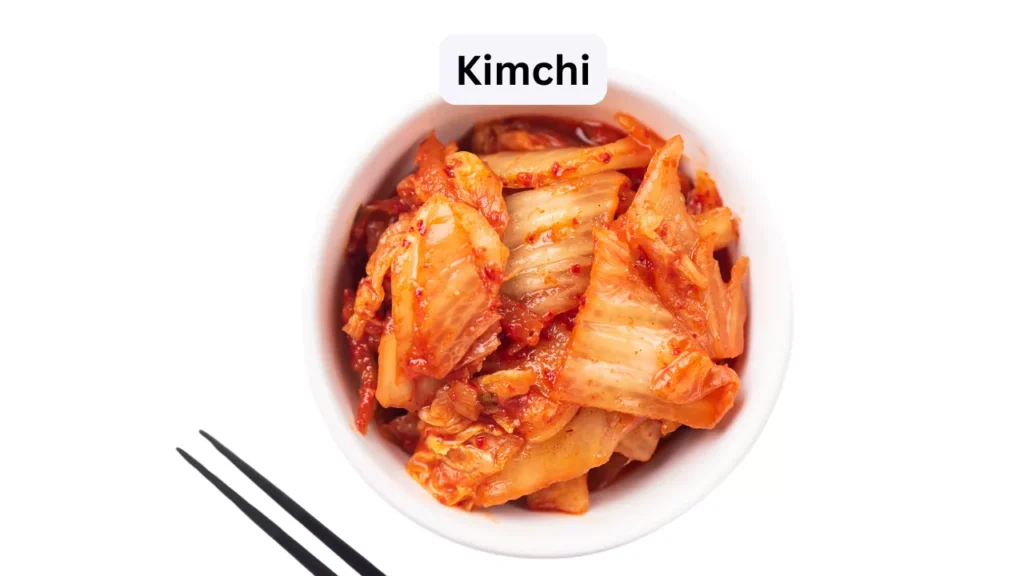
Kimchi is like sauerkraut’s spicy, flavorful cousin from Korea. Made from fermented veggies like cabbage and radish, it brings heat, crunch, and a big gut-friendly bonus: probiotics. It’s also loaded with vitamins and antioxidants, which help reduce inflammation in the gut. If you’re into bold flavors, you’ll love it as a topping for rice bowls, scrambled eggs, or even burgers. And don’t worry if you’re not into spicy food—there are milder versions out there, too. A little goes a long way, so even a few forkfuls with your meal can make a difference.
Asparagus
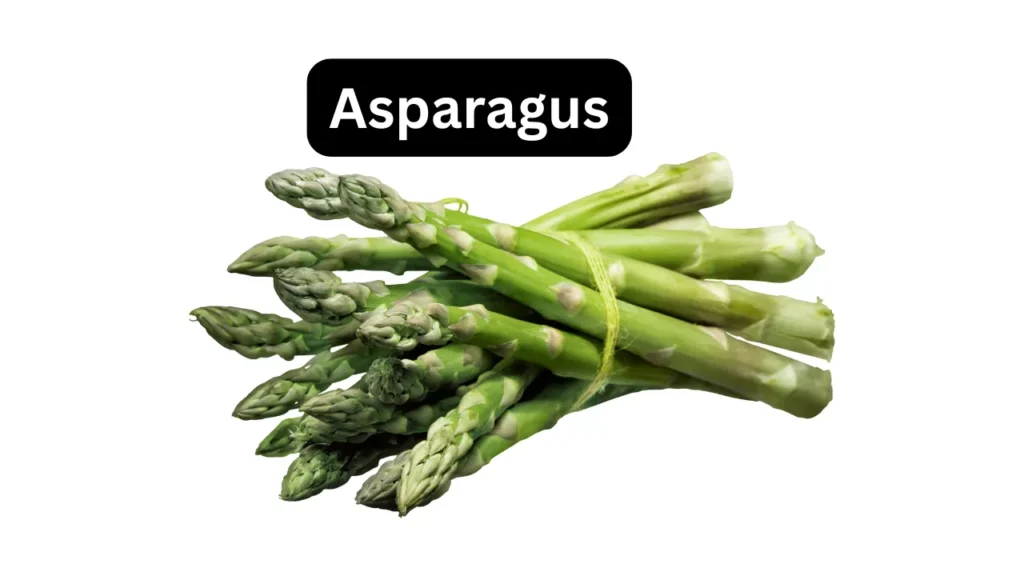
Asparagus doesn’t just taste great roasted or grilled—it’s a secret gut health hero. This veggie is full of prebiotics, a type of fiber that feeds the good bacteria in your gut. When you fuel your gut bugs with the right kind of fiber, they multiply and do a better job protecting your digestive system. Asparagus is super versatile—you can toss it in salads, serve it as a side, or mix it into pasta. It’s also rich in antioxidants and vitamins that support overall health. So the next time you’re planning dinner, don’t skip this green spear.
Garlic
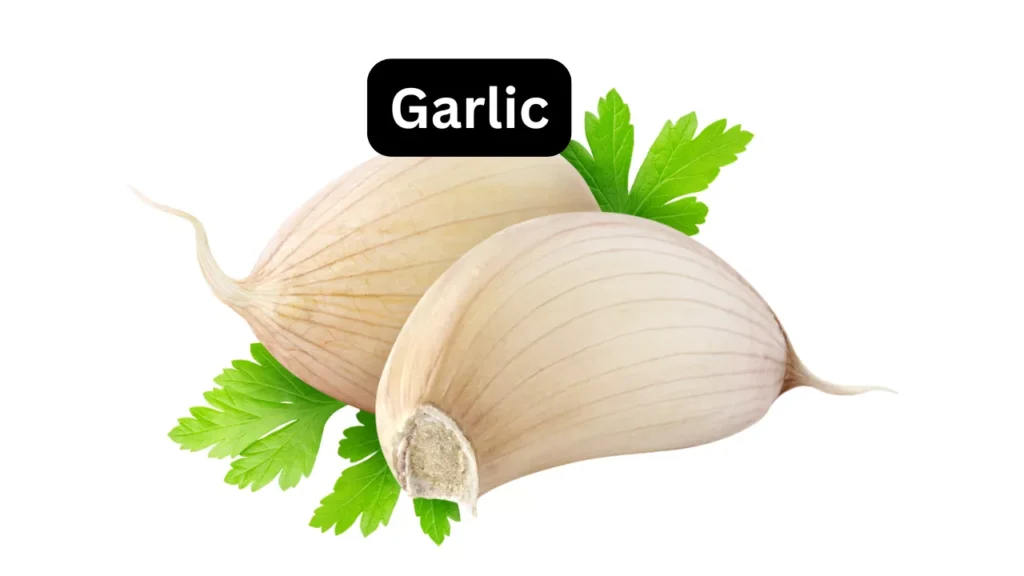
Garlic isn’t just great for flavor—it’s a total gut-health hero. This little bulb is a prebiotic, which means it feeds the good bacteria in your digestive system. And it doesn’t stop there. Garlic has natural antibacterial and antifungal powers, so it helps keep the bad bugs under control while letting the good ones thrive. You don’t have to eat a ton of it either. Just add a clove or two to your stir-fries, soups, or roasted veggies. If you’re feeling bold, try raw garlic chopped into salad dressings or dips—it packs a punch, but your gut will thank you. Bonus? It supports your immune system, too. Garlic is small but mighty when it comes to gut health.
Onions
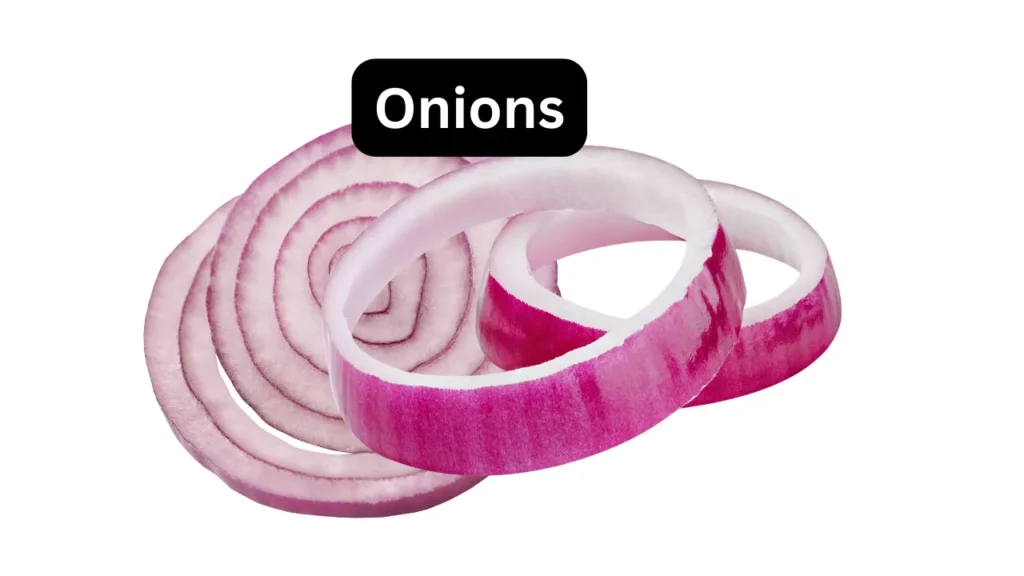
Onions do more than make you cry—they make your gut happy. Like garlic, onions are full of prebiotics that feed the good bacteria living in your gut. They’re also rich in fiber and antioxidants, which help fight off inflammation and keep your digestive system balanced. Whether you’re tossing them raw into a salad or cooking them into a soup or stir-fry, onions are super easy to add to your meals. Red onions, yellow, white—it doesn’t matter. They’re all good for you. Try caramelizing them for a sweet, rich flavor that makes any dish better. If you’re into gut health but not into supplements, onions are a natural way to support your belly from the inside out.
Bananas
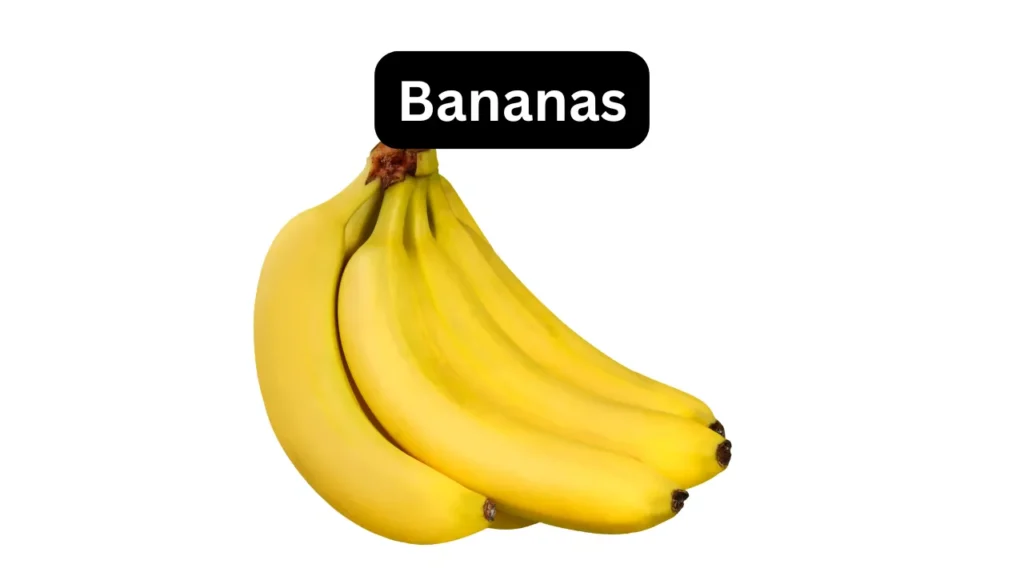
Bananas are a gut-health favorite for a reason—they’re gentle on the stomach, full of fiber, and loaded with prebiotics. That means they help feed the friendly bacteria in your digestive system. Bananas also contain a type of fiber called resistant starch (especially when they’re slightly green), which passes through your stomach undigested and becomes food for your gut microbes. They’re perfect for when your stomach feels off or if you just need an easy snack. Slice one over oatmeal, blend it into a smoothie, or eat it straight from the peel. Plus, they give you a quick energy boost without spiking your blood sugar. Sweet, satisfying, and good for your gut—bananas are an everyday superfood.
Blueberries
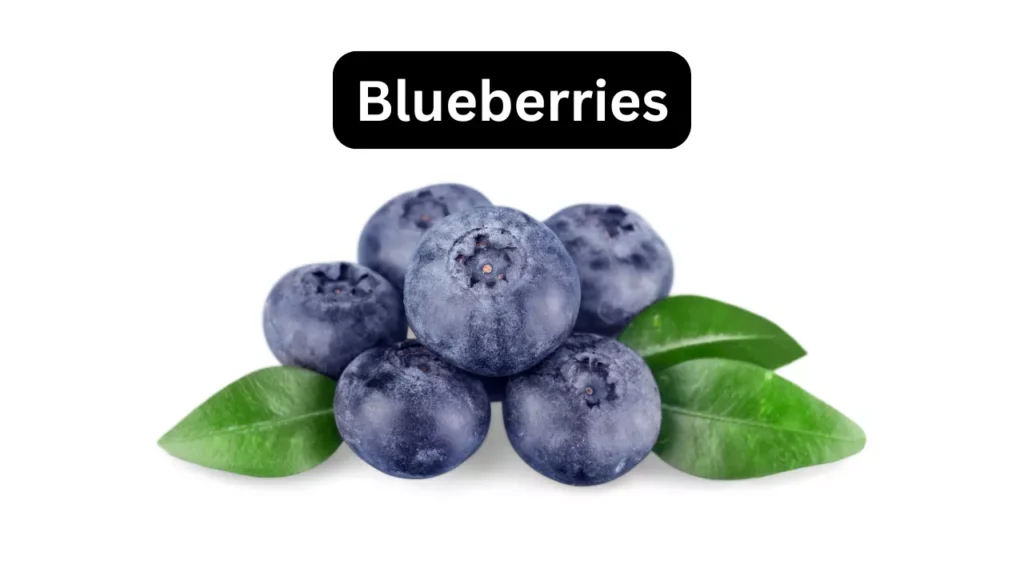
Tiny but powerful, blueberries are packed with fiber and antioxidants that do wonders for your gut. They help reduce inflammation and support the growth of beneficial gut bacteria. These little berries are also loaded with polyphenols, which are natural plant compounds that act like fuel for your gut microbiome. What’s great is that blueberries are super versatile—you can toss them in smoothies, sprinkle them over yogurt, mix them into pancakes, or just snack on them by the handful. They’re low in sugar compared to other fruits and still bring that perfect hint of sweetness. If you’re trying to boost your gut health in a delicious way, blueberries are one of the tastiest options out there.
Almonds
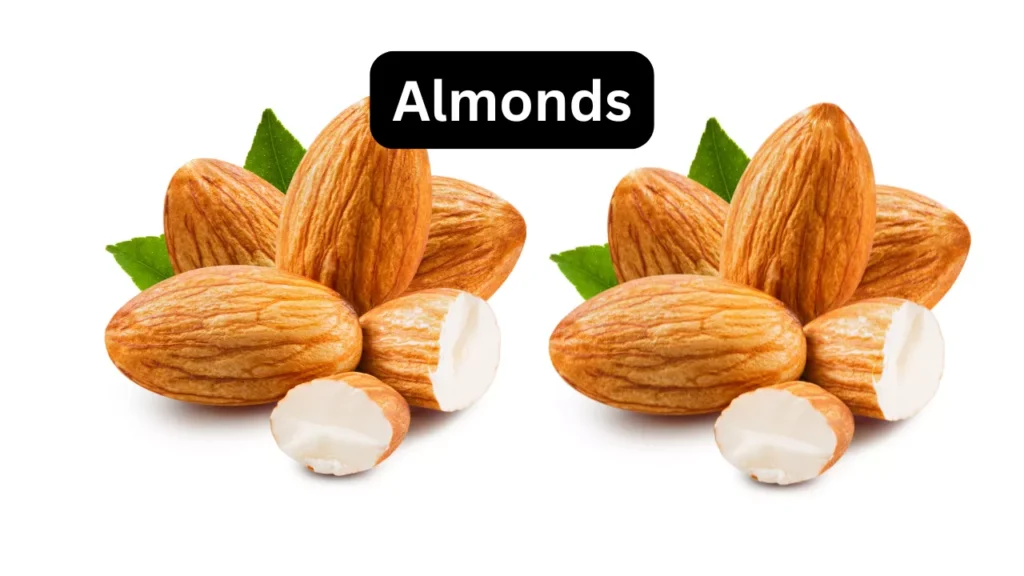
Almonds are more than just a crunchy snack—they’re a powerhouse for your gut. They’re rich in fiber, healthy fats, and protein, which all help support a happy digestive system. The skin of almonds contains prebiotics that feed good gut bacteria and help keep things moving smoothly in your intestines. A handful a day can go a long way in promoting balance in your microbiome. They also help regulate blood sugar and keep you feeling full, so they’re a win-win. Throw them in your salad, blend them into smoothies, or grab a small bag to take on the go. Your gut will love the steady nourishment almonds provide, and so will your taste buds.
Black Beans
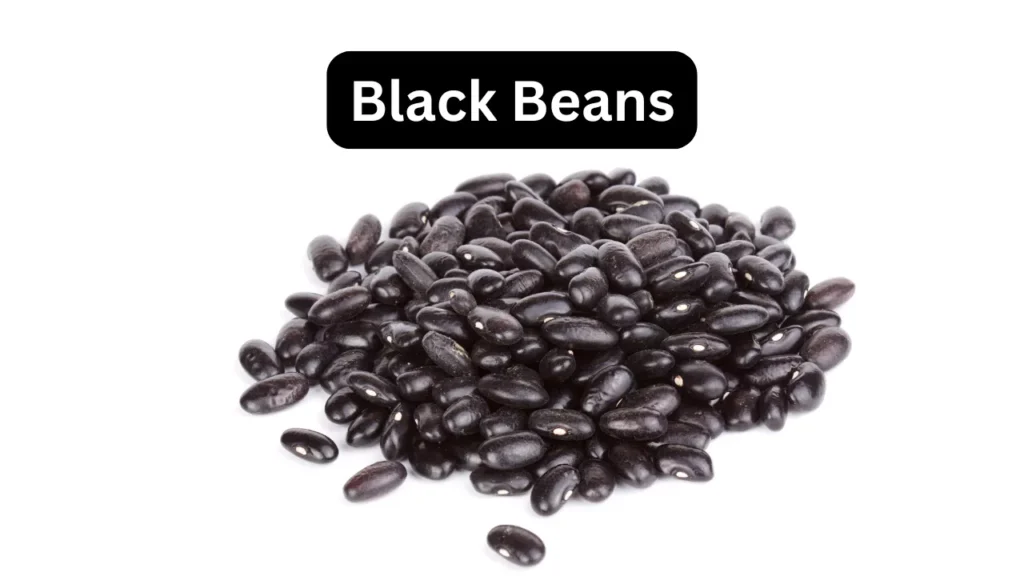
Black beans are a fiber bomb—and that’s a good thing for your gut. They’re packed with both soluble and insoluble fiber, which helps feed your gut bacteria and keeps your digestion regular. They also help you feel full longer and can support heart health along the way. Add them to rice bowls, tacos, or soups to instantly boost the fiber in your meal. They’re also super budget-friendly and easy to cook, especially if you use canned beans (just rinse them well to remove extra sodium). By giving your gut microbes the fuel they need, black beans help maintain a healthy balance of bacteria that keeps your digestive system running like a champ.
Sweet Potatoes
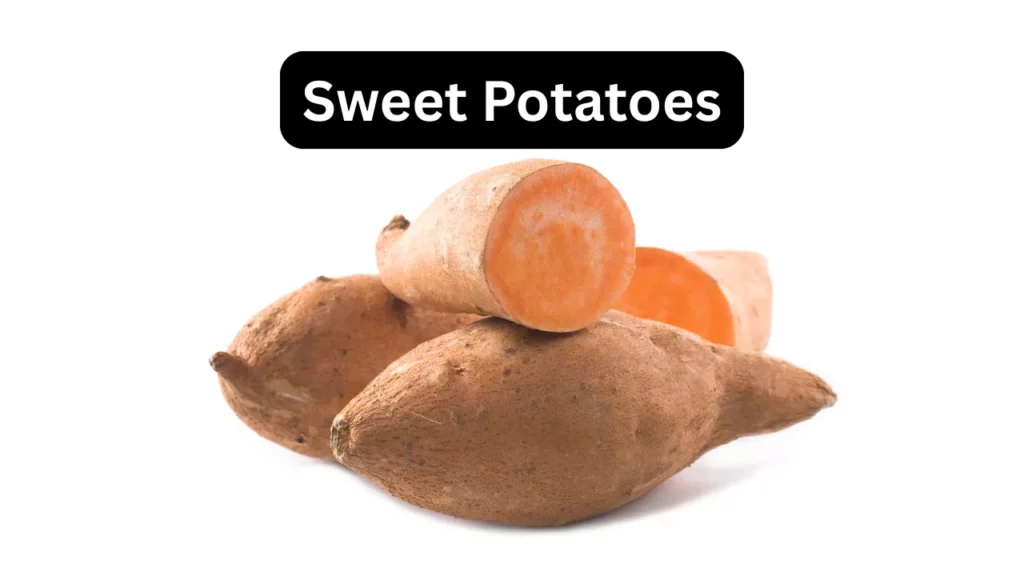
Sweet potatoes are comforting, versatile, and fantastic for your gut. They’re rich in fiber, which helps your digestion stay on track, and packed with antioxidants like beta-carotene that calm inflammation. When your gut lining is irritated or inflamed, these antioxidants can help soothe it. Plus, sweet potatoes have both soluble and insoluble fiber, which means they feed good gut bacteria while also helping to move waste through your digestive tract. You can roast them, mash them, toss them into stews, or even bake them into fries. Their natural sweetness makes them a hit with both adults and kids, and your gut microbes love them just as much.
Turmeric
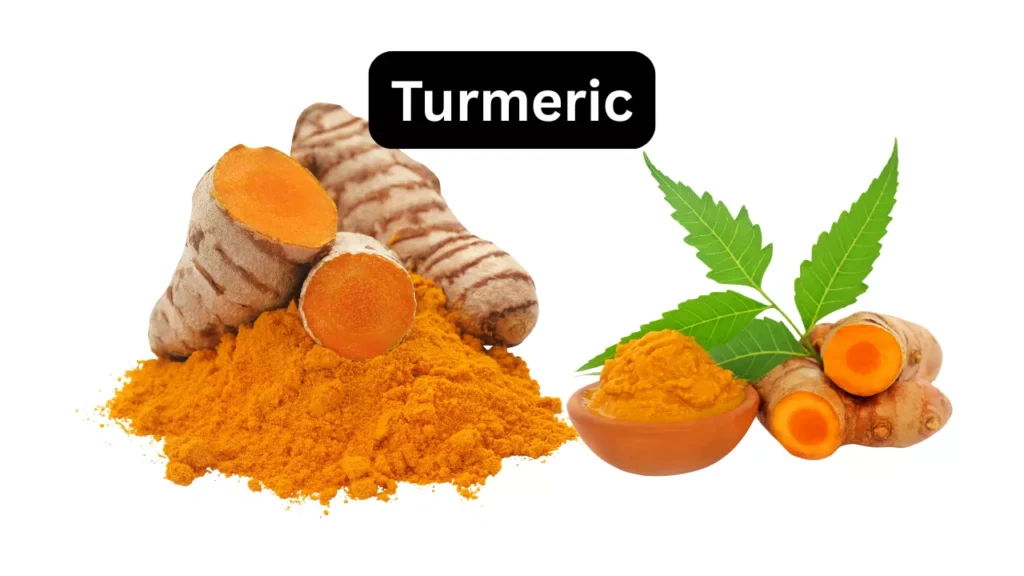
Turmeric is like a warm hug for your gut. This golden spice is famous for its anti-inflammatory properties thanks to a compound called curcumin. If your gut is irritated, inflamed, or just not feeling great, turmeric can help calm things down and support healing. It also encourages the production of bile, which helps your body break down fats and digest food more smoothly. You can stir turmeric into curries, sprinkle it into soups, or blend it into smoothies and golden milk lattes. Pair it with a bit of black pepper to boost absorption and you’ve got yourself a gut-friendly powerhouse. It’s a flavorful way to care for your digestive health from the inside out.
Ginger
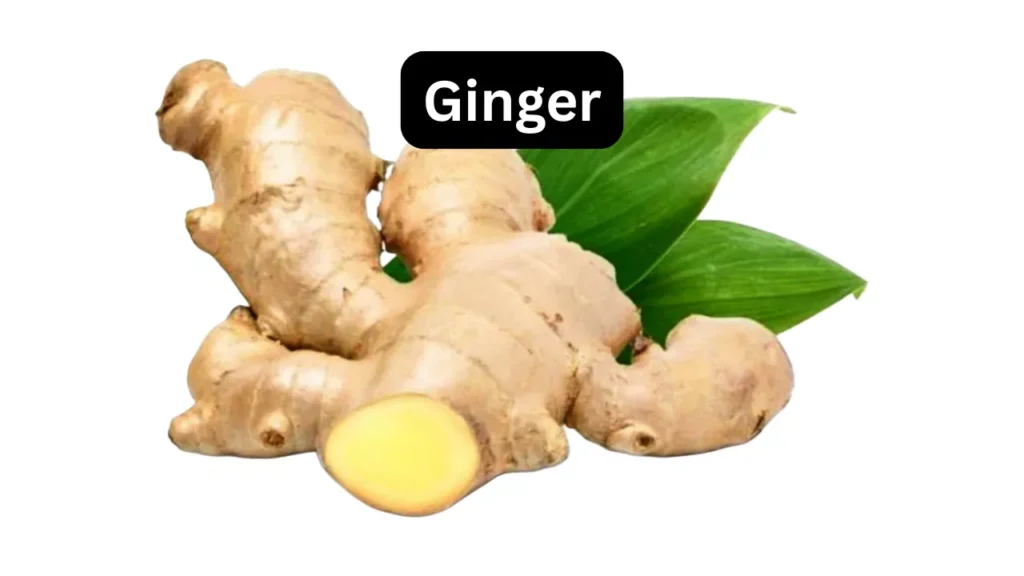
Ginger isn’t just for nausea—it’s a digestive superhero. This spicy root helps calm the stomach, reduce bloating, and ease gas. It can even help food move through your digestive system faster, which is great if you’re dealing with sluggish digestion. Ginger also has anti-inflammatory properties that support a healthy gut environment and keep things feeling smooth. You can brew it into a tea, grate it into stir-fries, or add it to baked goods and smoothies. A little goes a long way, and its zingy flavor makes dishes more exciting. If your gut ever feels off, ginger is one of the simplest, most natural ways to get things back on track.
Arugula
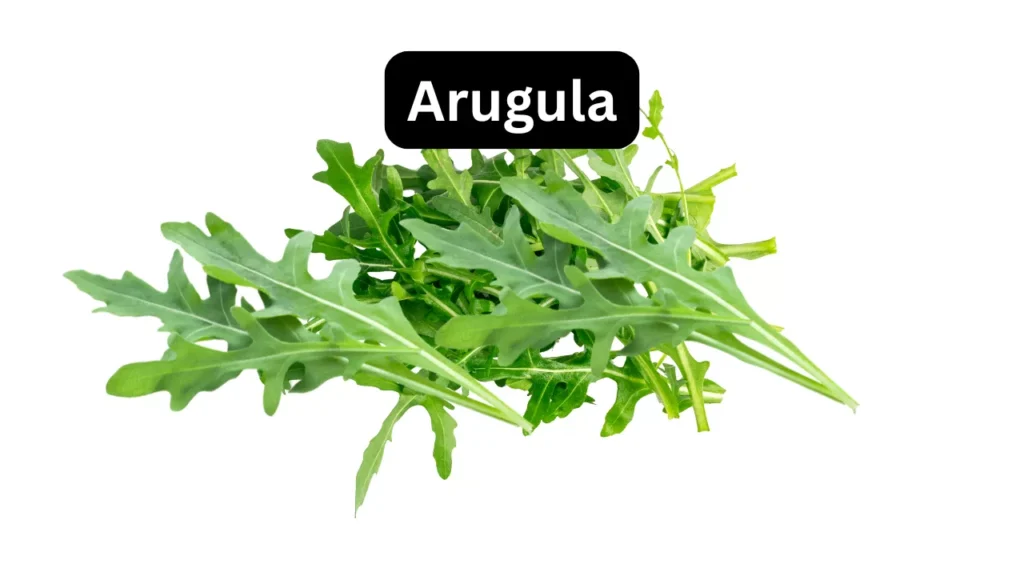
Arugula might not be the first thing you think of for gut health, but this leafy green packs a punch. It’s loaded with fiber that helps keep your digestion regular and full of prebiotics that feed the good bacteria in your gut. It also contains compounds that help your liver detox and your gut stay balanced. Arugula has a peppery taste that can spice up salads, sandwiches, and even scrambled eggs. You can eat it raw or lightly sautéed—it’s quick, easy, and super nutritious. If you’re bored with spinach or lettuce, arugula is a great way to switch things up while giving your gut the love it deserves.
FAQs
What Are The Best Foods For Gut Health And Bloating
To ease bloating and support gut health, load up on foods like ginger, fennel, kefir, and papaya. These help break down food, reduce gas, and encourage smooth digestion. Fermented foods and fiber-rich fruits can also keep things moving, which reduces that bloated feeling and supports a healthy gut environment.
What Are The Best Foods For Gut Health And Mental Health
Gut health is linked to your mood, thanks to the gut-brain connection. Foods like yogurt, kimchi, oats, bananas, and leafy greens support both digestion and mental clarity. They fuel good bacteria and help with serotonin production. Eating these regularly can actually boost your mood and reduce anxiety naturally.
What Are The 5 Best Foods For Gut Health
Top five gut-friendly foods? Try yogurt for probiotics, garlic for prebiotics, kefir to boost microbes, sauerkraut for fermented goodness, and chia seeds for fiber. These foods work together to create a happy, balanced gut microbiome. Regularly including them in meals keeps digestion smooth and your belly feeling its best.
What The 10 Best Foods For Gut Health
Looking for the best gut boosters? Reach for yogurt, kefir, sauerkraut, kimchi, miso, bananas, garlic, oats, chia seeds, and spinach. These foods are rich in fiber, probiotics, or prebiotics that strengthen your gut lining and support digestion. Eating a variety ensures your gut bacteria stay balanced and thriving.
What Are Best Foods For Gut Health After Antibiotics
After antibiotics, your gut needs a reset. Go for fermented foods like kefir, miso, and sauerkraut to reintroduce good bacteria. Add fiber-rich options like oats, lentils, and bananas to feed those microbes. Staying hydrated and eating whole, unprocessed foods also help your gut recover and rebalance faster.
What Is The Best Foods For Gut Health
There’s no one-size-fits-all, but fermented foods like kefir, kimchi, and yogurt top the list. They deliver probiotics that your gut loves. Also, fiber-rich veggies and whole grains help feed that good bacteria. Mixing both types keeps your gut ecosystem strong and functioning smoothly. Balance and variety are key.
What Are The Best Foods For Gut Health And Skin
A glowing complexion starts with your gut. Yogurt, berries, fatty fish, and fermented veggies like kimchi promote healthy digestion and reduce inflammation. These foods support gut-skin axis function, helping clear acne and brighten skin from the inside out. A healthy gut often means happier, clearer skin too.
What Are The Best Foods For Gut Health And Inflammation
Fight inflammation and help your gut with foods like turmeric, leafy greens, kefir, and berries. These contain anti-inflammatory compounds and support beneficial gut bacteria. Omega-3-rich foods like flaxseeds and salmon also soothe your system. A gut-friendly, anti-inflammatory diet can reduce bloating and boost your overall health.
What Are The Top 10 Best Foods For Gut Health
Your top gut-supporting lineup includes: kefir, yogurt, kimchi, sauerkraut, garlic, leeks, bananas, oats, chia seeds, and spinach. These offer probiotics, prebiotics, and fiber to fuel a diverse and healthy gut microbiome. Rotate these foods into your meals to support digestion, reduce inflammation, and feel your best daily.
What Are The Best Foods For Gut Health When Taking Antibiotics
When on antibiotics, go for probiotic-rich foods like kefir and yogurt to help replenish good bacteria. Add fiber from oats and bananas to feed those probiotics. Miso soup and fermented vegetables also support gut recovery. Avoid sugary and processed foods, which can worsen imbalances during antibiotic treatment.
What Are The Best Foods For Gut Health And Acne
Foods that calm your gut may also clear up acne. Add probiotics like yogurt, kombucha, and kimchi to your meals. Omega-3-rich foods like walnuts and flaxseeds reduce inflammation. Leafy greens and berries are loaded with antioxidants that support skin and gut healing. A balanced gut can reduce breakouts.
What Foods Naturally Support Gut Flora Balance?
To balance your gut flora, eat a variety of fermented foods like sauerkraut, kefir, and miso. Pair them with prebiotics like garlic, onions, and bananas to feed the beneficial bacteria. Fiber from fruits, veggies, and legumes also encourages diversity in your gut, creating a healthier internal ecosystem.
Which Vegetables Are Most Beneficial For Gut Health?
Vegetables like broccoli, kale, spinach, and Brussels sprouts are gut superheroes. They’re packed with fiber and antioxidants that fuel good bacteria and reduce inflammation. Root veggies like carrots and beets are also excellent choices. These veggies keep digestion running smoothly and support long-term gut health.
How Does Kimchi Help With Gut Health?
Kimchi is a fermented food packed with probiotics that boost your gut bacteria. Its fiber content feeds these good microbes, helping digestion and reducing inflammation. Regularly eating kimchi can improve your gut diversity and make your digestive system more resilient. It’s spicy, flavorful, and super beneficial.
What Foods Help Diversify The Gut Microbiome?
Diversity in your gut starts with a varied diet. Try fermented foods like kefir, high-fiber fruits like apples, whole grains, legumes, nuts, and leafy greens. Each food group feeds different types of microbes. The more plant-based variety you eat, the more diverse and balanced your gut microbiome becomes.
Are Pickles Good For Gut Health?
Naturally fermented pickles (not vinegar-brined) are great for your gut. They contain live probiotics that help balance your gut bacteria and improve digestion. Look for pickles in the refrigerated section with no added vinegar. Crunchy, tangy, and gut-friendly — just watch the sodium if you’re sensitive to salt.
Which Types Of Beans Are Best For Your Gut?
Black beans, lentils, chickpeas, and navy beans are gut-friendly champs. They’re packed with fiber that feeds beneficial bacteria and supports regular digestion. These legumes also help with blood sugar stability and reducing inflammation. Incorporate them into soups, salads, or stews for a tasty gut health boost.
Can Eating Sauerkraut Improve Digestion?
Yes! Sauerkraut is loaded with natural probiotics from fermentation, which can improve digestion and reduce bloating. It also contains fiber and enzymes that help break down food more efficiently. Eating it regularly can support a balanced gut, helping everything move more smoothly through your digestive system.
What Tropical Fruits Support Gut Health?
Tropical fruits like pineapple, papaya, mango, and guava are great for your gut. Pineapple and papaya contain digestive enzymes like bromelain and papain. These help break down proteins and reduce bloating. The fiber in these fruits also feeds good gut bacteria, promoting smoother digestion and a healthier microbiome.
Are Apples Good For Gut Health?
Absolutely! Apples are rich in pectin, a type of soluble fiber that feeds good gut bacteria. They help with digestion, reduce inflammation, and may even support weight management. Eating apples regularly can improve gut function and keep your microbiome balanced. Just leave the peel on for extra fiber!
What Type Of Yogurt Is Most Effective For Gut Support?
Plain, unsweetened yogurt with live and active cultures is best for gut health. Look for options labeled with probiotics like Lactobacillus or Bifidobacterium. Greek yogurt is thicker but still beneficial if it contains live cultures. Avoid sugary or flavored yogurts — they can undo the benefits with excess sugar.
How Do Mushrooms Affect Gut Health?
Mushrooms, especially varieties like shiitake and reishi, are rich in prebiotics that feed good bacteria. They also have anti-inflammatory and immune-boosting properties. Their fiber content helps regulate digestion and encourages a balanced gut microbiome. Add them to soups, stir-fries, or salads for a delicious gut-friendly boost.
Can Chia Seeds Improve Your Gut Health?
Yes! Chia seeds are packed with fiber, especially soluble fiber, which supports digestion and feeds good bacteria. When soaked, they form a gel that helps ease bowel movements and reduce bloating. Adding them to smoothies, yogurt, or oatmeal is a simple way to keep your gut happy.
What Herbs Are Best For Gut Health?
Herbs like ginger, peppermint, fennel, turmeric, and oregano can soothe digestion and reduce inflammation. Ginger helps with nausea, while fennel reduces gas and bloating. Turmeric supports gut lining health, and oregano has antimicrobial properties. These herbs not only add flavor but also actively support your digestive health.
How Do Avocados Support The Digestive System?
Avocados are rich in fiber and healthy fats, making them great for gut health. They help keep digestion smooth and feed good bacteria. The monounsaturated fats also reduce inflammation, which supports gut lining integrity. Plus, avocados are super versatile — toss them on toast, in salads, or blend into smoothies!
Are Sweet Potatoes Good For Gut Bacteria?
Yes, sweet potatoes are rich in fiber and resistant starch, which feed beneficial gut bacteria. Their natural sweetness satisfies cravings while helping digestion. Plus, they contain antioxidants that soothe inflammation in the gut lining. Roasted, mashed, or baked—sweet potatoes are a delicious way to keep your gut bacteria thriving.
How Does Barley Impact Gut Health?
Barley is a gut health hero thanks to its high content of beta-glucan, a type of soluble fiber. It acts as a prebiotic, fueling good gut bacteria and promoting smoother digestion. Regular consumption can reduce inflammation, improve bowel regularity, and support a balanced gut microbiome. Just make sure it’s whole, not processed.
What Smoothies Are Good For Gut Healing?
Gut-healing smoothies should be rich in fiber, probiotics, and anti-inflammatory ingredients. Try blending kefir or yogurt with banana, spinach, chia seeds, ginger, and blueberries. This combo supports digestion, reduces bloating, and nourishes your gut flora. It’s tasty, soothing, and packed with nutrients that help your gut repair and thrive.
Can Coconut Products Improve Gut Health?
Coconut products like coconut oil and coconut yogurt can support gut health. They have antimicrobial properties that help control harmful bacteria while nourishing the gut lining. Coconut yogurt adds probiotics, and coconut meat offers fiber. Use in moderation, though—too much fat may upset sensitive stomachs. Always choose unsweetened varieties.
How Does Miso Soup Benefit The Gut?
Miso soup is a fermented food full of probiotics that can enhance your gut microbiome. It’s made from fermented soybeans and contains beneficial bacteria that support digestion and immune health. Miso also provides enzymes that help break down food. Just avoid boiling the soup too hard—heat can kill those helpful microbes.
Are Sprouted Foods Good For Gut Health?
Sprouted foods like sprouted grains and legumes are easier to digest and higher in nutrients. Sprouting breaks down antinutrients and increases fiber and enzyme content, which can support gut health. These foods feed good bacteria and improve nutrient absorption. They’re a smart, gut-friendly upgrade from their unsprouted versions.
Do Raw Or Cooked Vegetables Support Gut Health Better?
Both raw and cooked vegetables support gut health in different ways. Raw veggies offer enzymes and crisp fiber that feed good bacteria. Cooked veggies are gentler on sensitive stomachs and still deliver fiber. A mix of both is ideal—cooked for ease, raw for diversity—giving your gut the best of both worlds.
Can A High-Fiber Diet Fix Poor Gut Health?
Yes, a high-fiber diet can improve poor gut health by feeding good bacteria and improving regularity. Soluble and insoluble fiber from fruits, veggies, legumes, and grains help diversify gut flora and reduce inflammation. It’s not an overnight fix, but over time, fiber-rich foods can restore a healthy, balanced microbiome.
How Do Legumes Influence Gut Bacteria?
Legumes like lentils, chickpeas, and black beans are packed with prebiotic fiber. They feed good bacteria, encouraging a diverse gut microbiome. Their resistant starch supports the growth of beneficial microbes while improving bowel movements. Eating legumes regularly helps your gut stay balanced, but introduce them gradually to avoid gas or bloating.
Are Whole Grains Necessary For Good Gut Health?
Whole grains provide essential fiber and nutrients that support gut health. Their prebiotics feed good bacteria and promote regular digestion. Grains like oats, quinoa, and brown rice help reduce inflammation and maintain a strong gut barrier. They aren’t absolutely necessary for everyone, but they’re a powerful ally for most people’s gut wellness.
Can Papaya Help With Digestion And Gut Support?
Papaya contains a natural enzyme called papain that aids protein digestion and helps reduce bloating. It’s also rich in fiber and antioxidants that support gut lining health. Eating papaya regularly can ease constipation and soothe sensitive stomachs. It’s a tropical fruit that’s as tasty as it is gut-friendly.
What Food Combinations Are Ideal For Gut Health?
Pair prebiotics and probiotics for a gut-loving combo—like yogurt with banana, or kimchi with brown rice. Add fiber-rich foods with healthy fats, such as avocado and beans, to improve nutrient absorption. These pairings feed your gut bacteria, improve digestion, and help maintain a balanced microbiome every day.
Are There Spices That Enhance Gut Health?
Yes, spices like ginger, turmeric, cinnamon, and fennel are great for your gut. They reduce inflammation, support digestion, and some even feed beneficial bacteria. Ginger soothes nausea, while turmeric fights inflammation. Fennel can ease bloating, and cinnamon helps with blood sugar balance. Sprinkle them into meals for flavorful gut benefits.
What Oils Are Best For Gut Support?
Extra virgin olive oil is one of the best oils for gut health. It contains anti-inflammatory compounds and helps support the gut lining. Flaxseed oil is also beneficial due to its omega-3 content, which helps reduce gut inflammation. Use these oils raw in salads or drizzled over cooked meals for maximum benefits.
Does Eating Garlic Daily Improve Gut Function?
Yes, garlic is a natural prebiotic that feeds beneficial gut bacteria. It also contains antimicrobial properties that help balance harmful microbes. Eating garlic daily, even in small amounts, supports a diverse microbiome and strengthens your digestive system. Raw or lightly cooked garlic gives the best results—just keep breath mints handy!
Are Onions A Prebiotic For Gut Health?
Absolutely! Onions are rich in inulin and fructooligosaccharides—natural prebiotics that feed good gut bacteria. They also contain antioxidants that help reduce inflammation in the gut. Whether raw, cooked, or caramelized, onions support a thriving microbiome. Just watch your portion if you’re sensitive to FODMAPs, as onions can cause bloating in some.